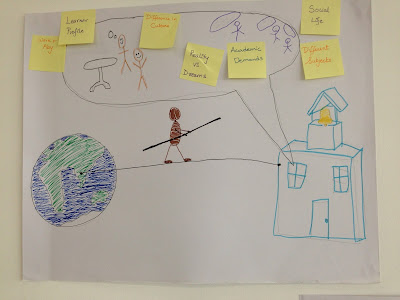This blog will be used to support the IB PYP Regional Workshop Making the PYP Happen in the Classroom which will be held in Mumbai from 20th to 22nd October 2016.
We hope you will find the information in the blog posts useful and that you will join our learning community by adding your comments and reflections.
In the 3 days of this workshop we will be looking at 3 big questions:
On Day 1 we will be looking at the Why? - this is the philosophy behind the PYP
On Day 2 we will be looking at the What? - this is the theory behind the curriculum. We will be looking at the written and the assessed curriculum.
On Day 3 we will be looking at the How? - this is our practice and how we bring the curriculum alive. We will be looking at planning for inquiry, teaching and learning.
Transdisciplinary Theme: How We Organize Ourselves
Central Idea: The PYP is a philosophy and curriculum framework for an international education
Lines of Inquiry:
We hope you will find the information in the blog posts useful and that you will join our learning community by adding your comments and reflections.
In the 3 days of this workshop we will be looking at 3 big questions:
On Day 1 we will be looking at the Why? - this is the philosophy behind the PYP
On Day 2 we will be looking at the What? - this is the theory behind the curriculum. We will be looking at the written and the assessed curriculum.
On Day 3 we will be looking at the How? - this is our practice and how we bring the curriculum alive. We will be looking at planning for inquiry, teaching and learning.
Transdisciplinary Theme: How We Organize Ourselves
Central Idea: The PYP is a philosophy and curriculum framework for an international education
Lines of Inquiry:
- the essential elements of an international curriculum
- inquiry as a stance
- teaching and learning of the whole child
- planning and assessing to inform and transform teaching
Key Concepts: form, function, causation































